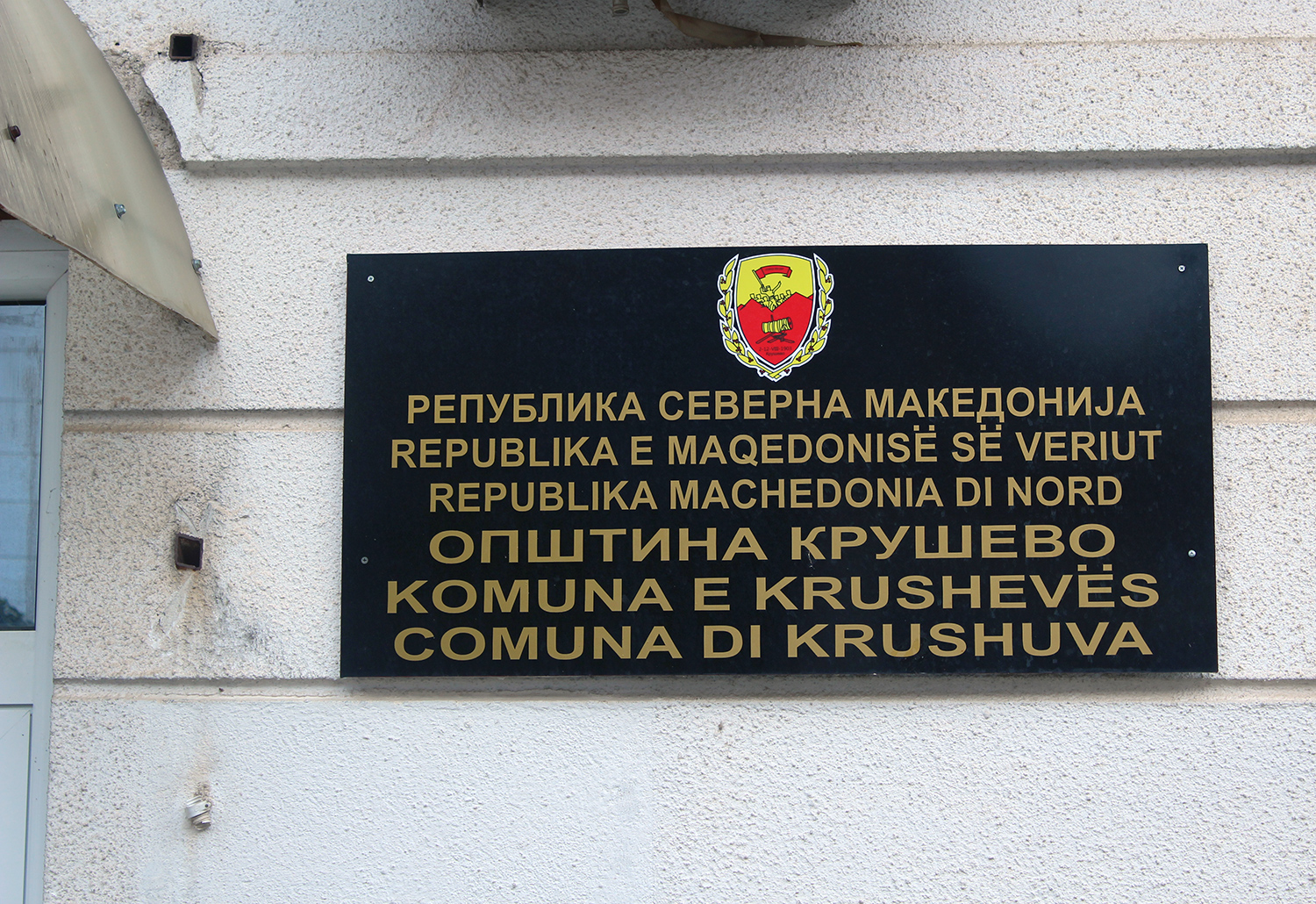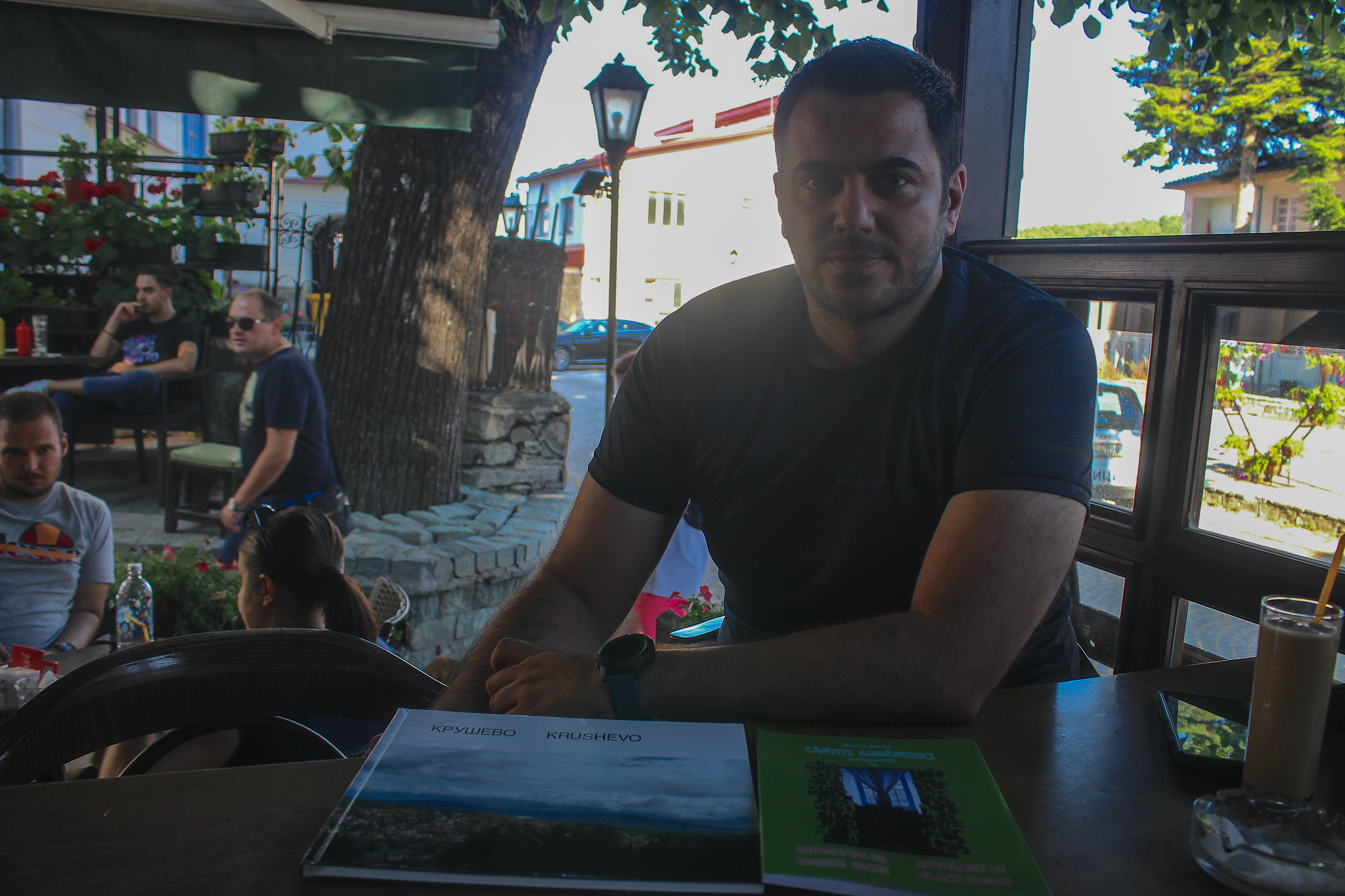News
North Macedonia Aromanians look for ray of hope
One people, many states, and disputed origins
Descendants of Roman soldiers, Latinized Greeks, people of Thracian origins, or Romanians separated from their homeland—these are some of the identity narratives that Aromanians have to swallow from the nation-states where they are born. For some, they are speakers of a simple dialect; for others, they are users of a poor, rural language without proper standardization. Nothing could be further from the truth. Aromanian (also referred to as Macedo-Romanian) is one of the four varieties of the Eastern Romance language subgroup. The other three are Romanian, Megleno-Romanian, and Istro-Romanian. Romanian (known as Daco-Romanian by linguists) is the language of 25 million speakers in Romania and Moldova (where it is known as Moldovan). On the other hand, with a much smaller number of speakers (5,000 and 1,000, respectively), Megleno-Romanian is spoken in the border area between North Macedonia and Greece, and Istro-Romanian on the Croatian peninsula of Istria. Those 200,000 people who speak the Aromanian language do it in one of the three dialectal varieties: Farsharot, Gramustean, or Pindean.
In Greece, where historically the Vlach community was more numerous, they cannot study it. Vlachs predominantly identify themselves as ethnic Greeks who adopted the Roman Empire’s language and have no recognition. Assimilation is stronger than ever; language intergenerational transmission ceased about thirty years ago. The lack of awareness by many Greeks about the situation of minorities in the country is prevalent. Many still associate the name “Vlach” with “shepherd”, and believe that “Vlachika”, i.e. “the language”, means “the dialect of northern Greeks.”
Protection and recognition in North Macedonia
The case of North Macedonia is the most significant. Aromanians (Macedo-Aromanians or Macedo-Vlachs) are one of the national minorities in this country. Thanks to North Macedonia’s constitution, Crushuva has become the centre of Vlachs in this Slavic-majority country. The Constitution stipulates that any language spoken by 20% of the population in a municipal unit automatically becomes recognised as an official language. In this rugged city, filled with stork nests and mud roofs, Aromanian is the second official language.
 A trilingual sign in Macedonian, Albanian, and Aromanian in Crushuva. / Photo: D. C. B.
A trilingual sign in Macedonian, Albanian, and Aromanian in Crushuva. / Photo: D. C. B.Crushuva (Krushevo in Macedonian) rests within a valley, and from its heart, I go for a drink with Pero Mular, the son of Hristu Mular, the revered Aromanian ethnomusicologist. His archive contains more than 500 original Aromanian songs. Pero shows me some volumes of the anthology of Aromanian songs (Cãntits armãneshci antologhie), the result of his father's work.
“It’s us, the parents, who strive to preserve our heritage.” Pero’s wife is Serbian, and at home, they mix Serbian and Macedonian, but he always speaks Aromanian to their son. “Literary Aromanian is taught in some primary schools from 3rd to 9th grade, but it’s optional. An elective subject after regular classes, where many Macedonians also participate.” One of the significant problems is the lack of Aromanian teachers, often trained in other subjects such as geography or French, Pero explains. “We need to collaborate more with other Aromanians,” he advises.
“Before, they called us Krislovski; now, we are Mular. We have reclaimed the family surname. Changing the surname is not very common among our people; I think they don’t understand our value,” Pero comments. Pero takes out his ID card from his pocket following the conversation. “Here it says I am Aromanian. Some of us hide it. They say they are Macedonians. On the other hand, others claim to be Vlachs without really being so.” The mix of identities is common in these areas. Albanian is the other language of the city and, in fact, of the entire state.
 Pero Mular. / Photo: D. C. B.
Pero Mular. / Photo: D. C. B.Aromanian and the younger generation
The younger generation holds the key to the language’s future. Andjelo Pavlovski is a young Aromanian reconnecting with his roots. Despite a broken transmission at home, he is now studying the language independently. “In the major cities of the Balkans, Aromanian has been lost in many families, but we can study it here in Skopje.” Andjelo has convinced his maternal family that, from now on, he will speak to them in Aromanian.
Crushuva is known in the region for its monument to the National Liberation of Macedonia and the Ilinden-Preobrazhenie Uprising, the Makedonium. At the top of the mountain, inside that sort of spaceship, the renowned local illustrator Zoran Kardula Vlach has recently exhibited part of his art. His work recalls patterns from the former Yugoslavia as well as Soviet constructivism and the Russian avant-garde, blending them with his Aromanian heritage. “Every May 23, the International Day of Aromanians, I publish illustrations of famous Aromanian figures, including their biographies. I want to bring Aromanian culture to the public, to acknowledge the heritage that all these people have left in Balkan history,” explains Zoran.
Many Aromanians held (in Yugoslav times) and still hold leadership positions without feeling pressured due to their ethnicity. “Aromanians are loyal citizens of the countries where they live, and proud as well.” Unfortunately, despite being an official language, Crushuva residents face the same problem as the rest of the Vlach community. The loss and forgetting of their language, which is dying out. “There are fewer and fewer young people speaking the language, and that is worrisome. For example, when I grew up in Krushevo, we all spoke Aromanian. I learned Macedonian at school when I was 7. Today’s situation is very different. You can no longer hear children speaking Aromanian, even when they are Aromanian by both parents.” For Zoran, neither the state nor the institutions are to blame here; it is the parents who are not passing it on to their children. “As long as we have a language, we will exist. This issue is crucial to preserving our identity.”
MRT 4, the television for the national minorities
Zoran lives in Skopje, the headquarters of Makedonska radio-televizija. The channel MRT 4 broadcasts programs in high definition for all national minorities of North Macedonia: Turkish, Serbian, Romani, Bosnian, and Aromanian. The first program with Aromanian was aired on January 9, 1991. What began with only 15 minutes every Wednesday is now a daily broadcast. Jana Mihailova is the news anchor. “Macedonian television is the only national television in the world that broadcasts programs in the Aromanian language. To reach the entire world, we have opened our YouTube channel,” says Jana.
“We discuss Aromanian community issues, such as language education. We report on the activities of Vlachs in neighbouring countries and record documentaries on how Vlachs live in other countries. We produce many programs about history, culture, tradition, customs, folklore... we target the older generations, but we place special emphasis on the younger generation with children’s programs, educational shows, debates... Of course, it’’s not easy, as professional Vlach journalists are scarce in the newsroom,” says the communicator.
Accepting the standard to move forward
Aromanian standardization is still a subject of dispute. In 1997, a group of enthusiastic Aromanian activists and linguists, led by Iancu Ianachieschi-Vlahu, gathered in Bitola, in the Republic of North Macedonia, to organize a symposium for the standardization of the Aromanian language. In that place, the writing rules for literary Aromanian, Gramaticã armãneascã, were adopted. Some Aromanians did not accept them. Some dialects have quite pronounced phonetic, grammatical, and even lexical differences. Additionally, in Greece, many reject the Latin alphabet. A consensus has not yet been reached, but a significant number of intellectuals accept the norms (which are also taught to children in school) and use them every day. Without a transnational political will, grammar cannot be truly effective.
Writing in Aromanian in North Macedonia has progressed faster than in other countries. However, many Aromanians still have difficulties writing in their language. “To date, there is no department that studies the Aromanian language anywhere, although there have been several attempts to establish them. Since 2005, the only option available is to take it as an optional subject at the Faculty of Education in Shtip (North Macedonia). However, practice shows that very few or no students choose it as an optional subject. And at the Faculty of Philology in Skopje, there is the opportunity to study it as an optional subject as well. This is since 2012, but so far, it hasn’t come to fruition,” says Jana.
“We are the only public television in the world that broadcasts programs in Aromanian. Before, there were others in Bitola (North Macedonia) or Constanţa (Romania), but they were private. Many say that our editorial board is a window to the world, a bridge that connects Aromanians worldwide. If we do not nourish it, if we break this connection bridge, future generations will judge us for not preserving our language. We must contribute to its preservation because if the Aromanian language dies, the Aromanian people will not exist. We will not allow that to happen,” Jana states clearly.
“The will of the forefathers” refers to all those parents who deprive their children of their own language. It curses anyone who abandons it in favour of assimilation. This is what the Aromanian anthem Dimãndarea pãrinteascã written by Constantin Belimace says. The poem is a statement of intent. Despite being written in 1888, it is, unfortunately, more relevant than ever.
